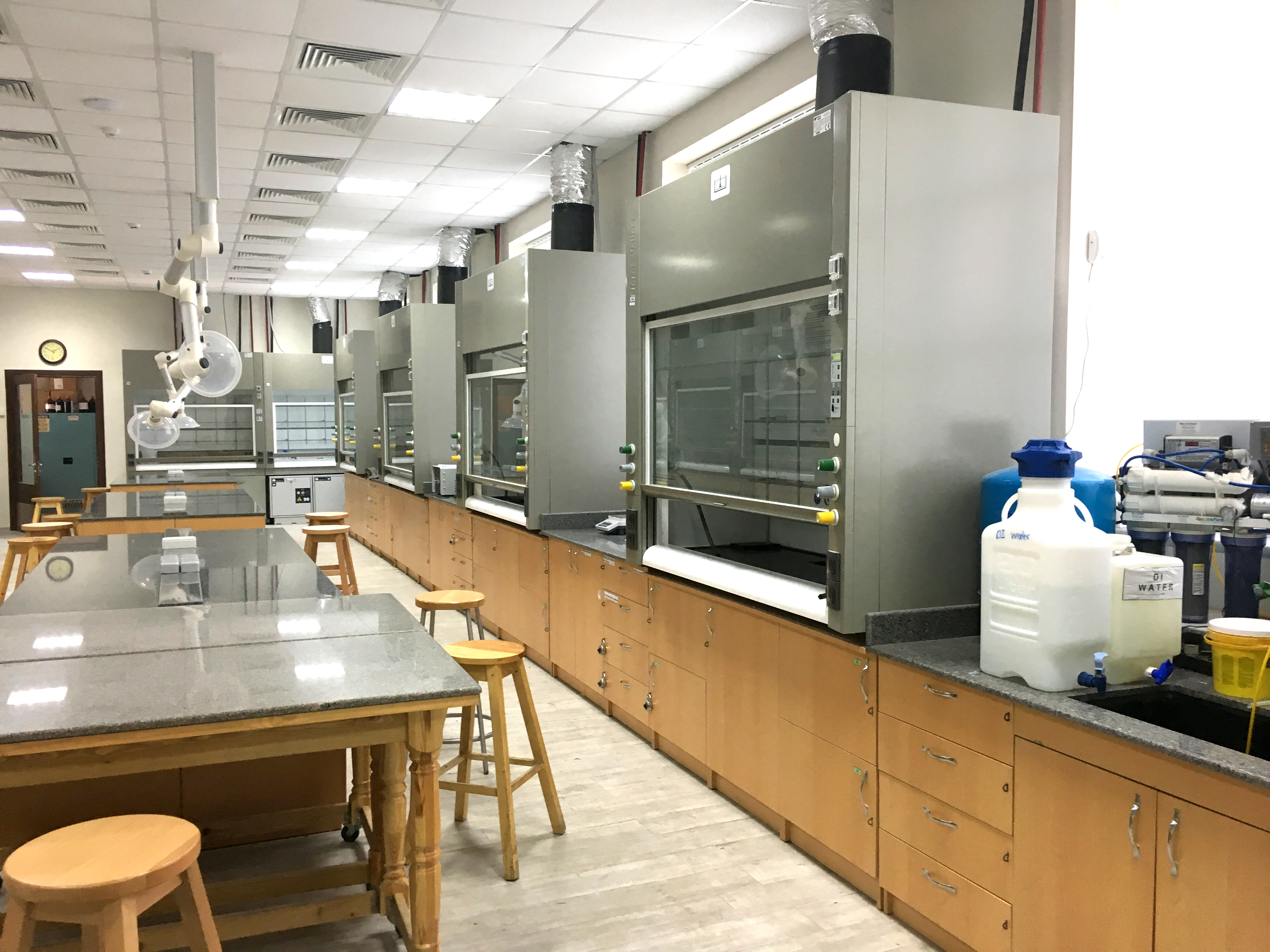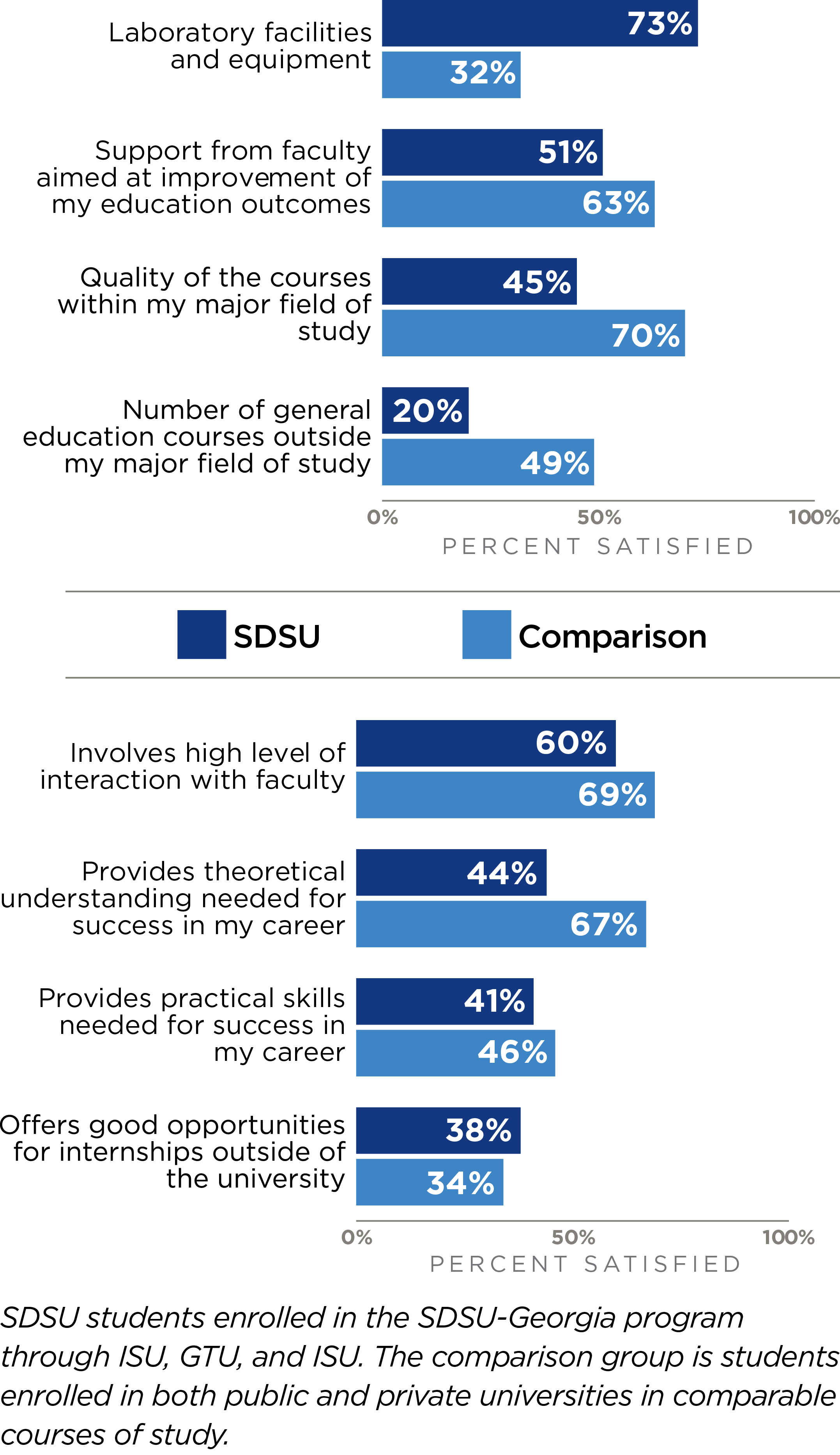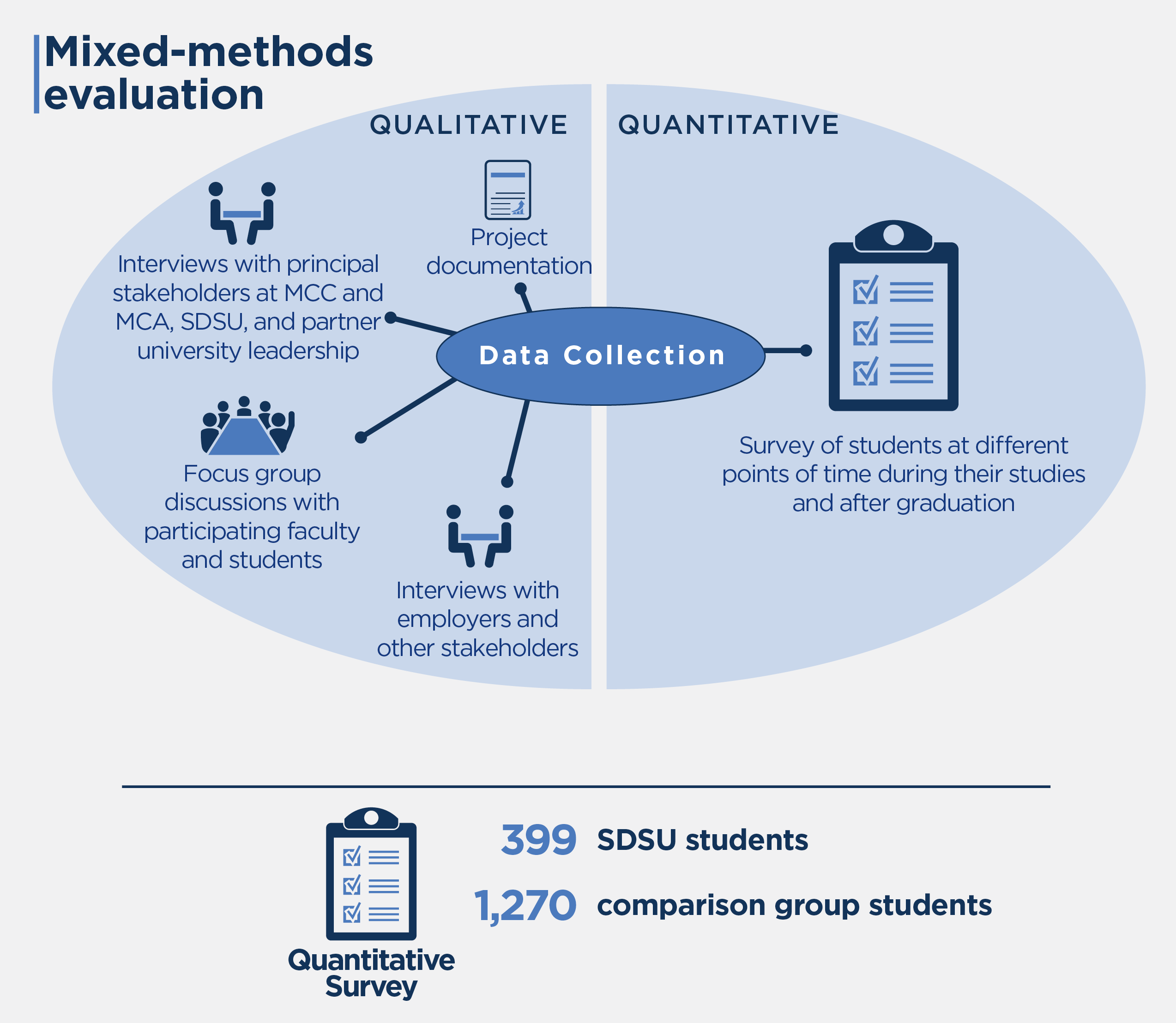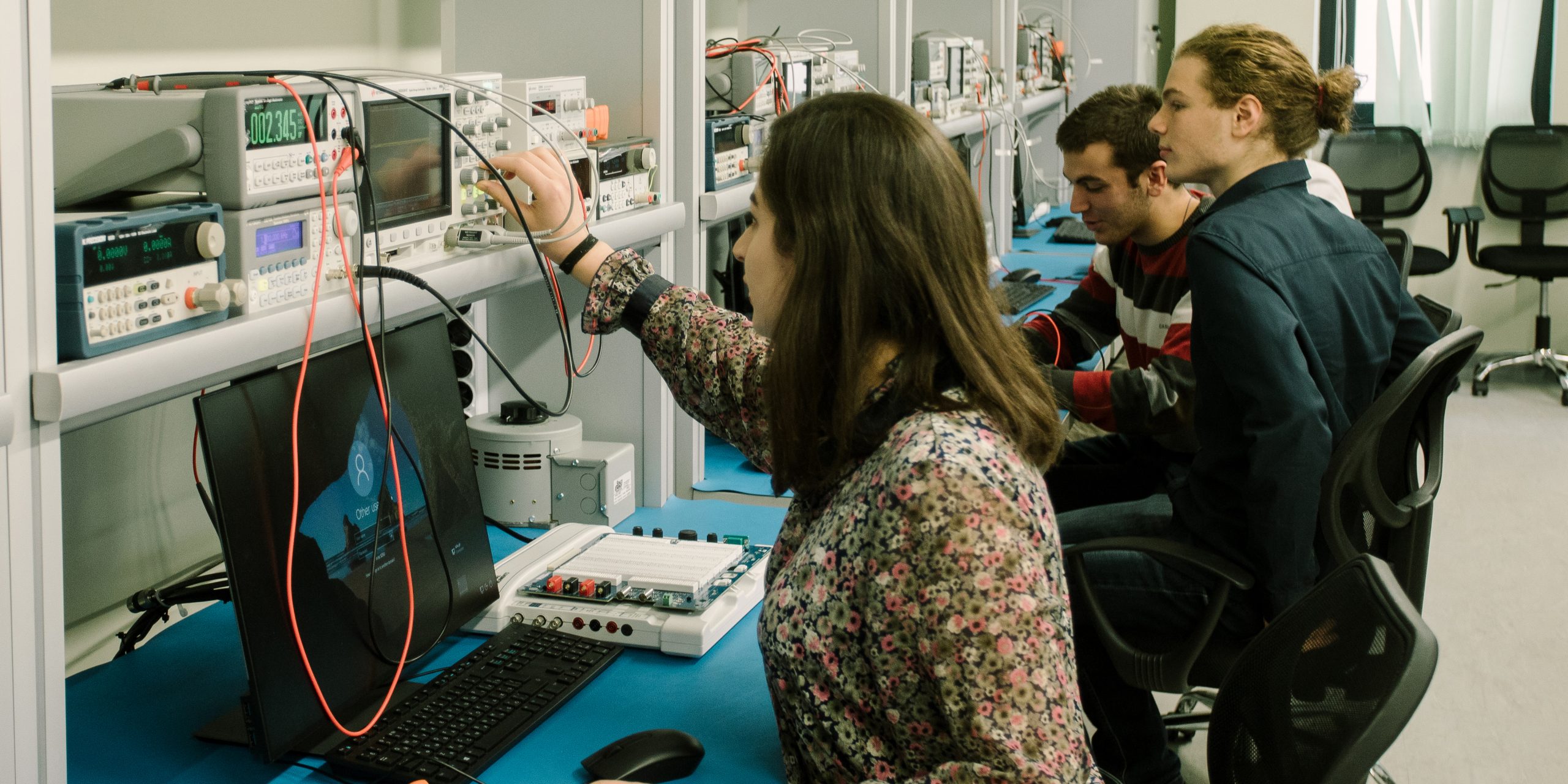Program Overview
MCC’s Georgia II Compact (2013–2019), which disbursed $136 million, funded the $30 million STEM Higher Education Project, which aimed to improve science, technology, engineering, and mathematics (STEM) university education to give graduates better employment opportunities with higher incomes, leading to an increase in economic growth. Three public Georgian universities and one university from the United States worked to give Georgian students an opportunity to earn a high-quality STEM bachelor’s degree, improve the Georgian partners’ STEM-related infrastructure, and prepare the partners for international program accreditation.
Evaluator Description
MCC commissioned the RAND Corporation to conduct an independent interim performance evaluation of the Georgia II STEM Higher Education Project. Full report results and learning: https://data.mcc.gov/evaluations/index.php/catalog/248.
Key Findings
University Partnerships
- San Diego State University (SDSU) led the development of partnerships with three Georgian public universities: Georgian Technical University (GTU), Ilia State (ISU), and Tbilisi State (TSU).
Project Implementation
- Georgians found tuition too expensive but MCA-G, MCC, and GoG collaborated to generate scholarship funds to increase demand for the program.
Student Perceptions
Sustainability
Evaluation Questions
This initial evaluation aimed to highlight implementation successes and challenges and assess progress toward achieving longer-term outcomes by answering:
- 1
How was the partnership established and carried out? How did it change over time? - 2
Were the activities implemented through the project aligned with the program design, as documented in the logic model? - 3
How do SDSU and comparison group students view their programs? - 4
To what extent are the project activities sustainable?
Detailed Findings
University Partnerships

New SDSU-Georgia chemistry laboratory at TSU
While the initiative called for the development of partnerships between SDSU and the three Georgian universities, interviewees suggested that the relationships were developed mostly among SDSU and each partner separately.
Initially SDSU, MCC, and MCA-G determined the goals and activities with little input from partner institutions. However, interviews suggest that partner institutions are likely to have a larger leadership role in defining the future vision and activities, which has strengthened the partnership.
Project Implementation
Initially it was a challenge to recruit students. Eighty-five percent of all Georgian students at SDSU-G came from families whose mean income was less than 40,000 Georgian Lari, or under $17,000. As such the cost of tuition (USD 7,500 Annually) was a barrier to enrollment. MCC and MCA-Georgia engaged in intensive efforts to raise scholarship funds to permit the program to proceed. Georgian faculty worked with SDSU faculty on their pedagogy to improve the student experience, and while students noted some positive changes they also indicated the need for more training in pedagogy. In a strong endorsement of the program, stakeholders report that after having several SDSU students as interns, one employer decided to sponsor four-year scholarships for 10 SDSU students.
Student Perceptions

Surveys show that students in the program were very satisfied with new facilities and equipment, but less so with faculty support and interaction. In addition, many SDSU-G students responded that their expectations regarding internship opportunities were not met.
Sustainability
All three Georgian universities are interested in sustaining STEM programs and their relationships with SDSU after the compact end date. Without SDSU’s presence in Georgia, the program cannot deliver US degrees. However, the partner universities, with support from SDSU, are moving toward international accreditation for their STEM programs. Two programs (Computer Science and Electrical Engineering) at Tbilisi State University, received ABET accreditation in October 2020, which is retroactive and also valid for the next 6 years. Georgian universities are exploring other ways to work together, including the development of a dual-diploma degree, graduate programs, and mentorship opportunities for scholars.
The project has placed significant emphasis on the partner universities developing their own ABET/ACS accredited programs. Accreditation will allow the universities to continue international education practices in the longer term, especially after the compact-funded SDSU cohorts in Georgia end. Nonetheless, it will take sustained government support and coordination with the partner universities to continue the program.
MCC Learning
MCC should work to obtain a better understanding of students’ ability and willingness to pay for higher education.
New education programs require ramp-up periods for outreach and to build their image or “brand.”
MCC should agree on site identification with partner governments prior to committing Compact resources to infrastructure rehabilitation.
Evaluation Methods

The study used a mixed-methods approach. The qualitative approach included a review of project documentation; interviews with principal stakeholders at MCC and MCA, SDSU, and partner university leadership; focus group discussions with participating faculty and students; and interviews with employers and other stakeholders. This information enabled the team to understand:
- how the partnership evolved;
- how the SDSU program was implemented and the challenges it faced;
- support provided to implement the program;
- policies that hindered or facilitated the partnership and program; and
- sustainability efforts.
The quantitative approach used a survey of students at different points of time during their studies and after graduation (tracer survey). Administered in 2019–2020 to 399 SDSU and a comparison group of 1,270 students enrolled in Georgian public and private universities in comparable STEM programs, the survey collected information on students’ views of their programs and the programs’ effectiveness as well as demographic and employment information. The final survey will be administered to the same respondents in 2023 to capture changes in employment and wages after degree completion and differences among both groups.
Next Steps
The final study—covering a full set of evaluation questions, including on program impact, and evaluation-based cost-benefit analysis (CBA)—is under way and results will be available in 2023.
2020-002-2486


